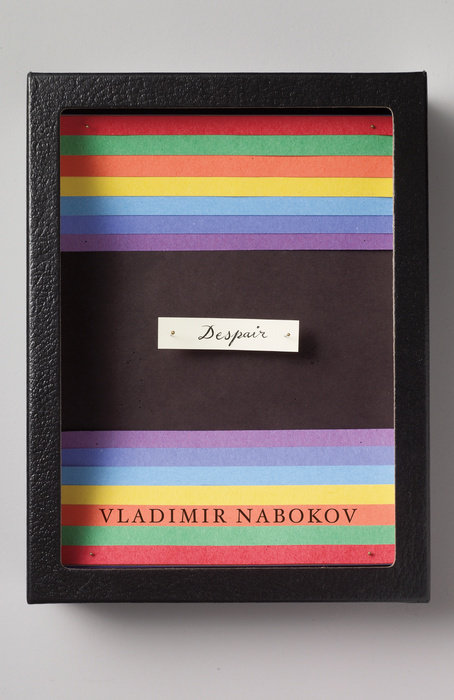
The Gift
Book Description
A brilliant young Russian émigré finds his life entwined with memory and language in a city that feels both familiar and foreign. As he navigates love, ambition, and betrayal, he grapples with the shadows of his past and the weight of his literary aspirations. Each page breathes tension, revealing not only the beauty of art but the haunting complexities of existence. Relationships fracture and rebuild, as the allure of a mysterious woman pulls him closer to the precipice of both creation and despair. Will he seize the gift of his own voice, or will it slip through his fingers like so many lost dreams?
Quick Book Summary
Vladimir Nabokov's "The Gift" is a luminous meditation on art, memory, exile, and the labyrinthine pursuit of literary excellence. The novel follows Fyodor Godunov-Cherdyntsev, a talented young Russian émigré living in Berlin during the 1920s, whose life oscillates between the external hardships of émigré existence and the internal grandeur of artistic aspiration. Haunted by the loss of his homeland and the memory of his father, a famed explorer, Fyodor channels his longing into writing, where language becomes both his solace and his battleground. As he navigates relationships—chiefly his evolving love for the enigmatic Zina—Fyodor wrestles with his ambitions, the disillusionments of the émigré community, and the ever-present tension between past and future. Ultimately, "The Gift" is both a coming-of-age story and an homage to Russian literature, rich in introspection, humor, and Nabokov's virtuosic wordplay.
Summary of Key Ideas
Table of Contents
The Artistic Struggle and Search for Identity
Fyodor Godunov-Cherdyntsev, a young poet and the narrator of "The Gift," arrives in Berlin as part of the Russian émigré wave, displaced by revolution and war. The city is both alien and filled with echoes of the homeland. Fyodor’s life is characterized by both spiritual bounty and material scarcity, reflecting the dislocation many émigrés feel. He sustains himself by teaching, translating, and writing poems, while the ghostly presence of his father—a noted explorer lost in Asia—serves as a driving force behind many of his meditations and creative impulses.
Memory, Loss, and the Exile Experience
As Fyodor seeks success as a writer, he plunges into the intricacies of language, drawing constantly from his memories of Russia, childhood, and family. The act of remembering not only preserves his identity but also becomes a fertile source of artistic material. Nabokov fuses lyricism with metafiction as Fyodor crafts a critical biography of Chernyshevski, a real nineteenth-century Russian intellectual. This work within a work is controversial among émigrés and highlights tensions between creative freedom and ideological conformity, as Fyodor struggles to assert his unique literary voice amid the shifting expectations of his community.
Love and Human Connection
Love emerges as a beacon amid Fyodor’s intellectual turmoil. His relationship with Zina Mertz, a fellow émigré, evolves from tentative companionship to deep partnership. Zina embodies warmth and stability, providing Fyodor with a sense of belonging in an unstable world. Their story is marked by moments of both vulnerability and mutual creativity, and Zina’s influence helps Fyodor balance his dedication to art with the joys and pains of human connection. Through their relationship, Nabokov explores the redemptive and transformative power of love.
The Influence of Russian Literary Tradition
Throughout the novel, Nabokov pays homage to the Russian literary tradition, embedding references to Pushkin, Gogol, and Tolstoy. Fyodor’s development as a writer is linked to his engagement with this rich cultural heritage; the novel often blurs the boundaries between homage and parody. Nabokov uses this intertextuality to probe questions of authenticity, originality, and the burden of literary inheritance. For Fyodor, embracing his creative individuality means both honoring and transcending the giants who have come before him, allowing the past to fertilize new artistic growth rather than stifle it.
The Nature of Reality and Imagination
In "The Gift’s" final pages, Fyodor reaches a place of Romantic reconciliation. The hardships of exile, the disappointments in love and ambition, and the constant questioning of reality and fiction culminate in a recognition of art’s power to transform suffering into beauty. Fyodor chooses to embrace his vocation, seeing in his artistic gift a means not just of personal salvation, but of connecting with others and asserting the irreducible dignity of his voice. Nabokov’s novel thereby becomes a testament to the possibilities of creativity amid loss and dislocation, celebrating the enduring significance of literature and imagination.
Download This Summary
Get a free PDF of this summary instantly — no email required.





